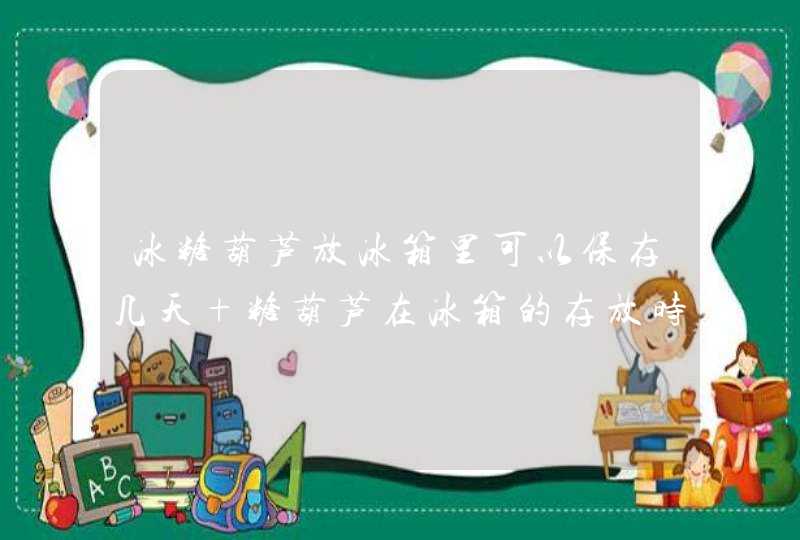1、because的用法:
because通常表示直接的原因。because引导的从句表示直接而明确的原因和理由,表示按因果关系的推断,语气很强,用来回答why的问题,一般位于主句之后。
eg We couldn't go out because these robberare still outside
2、for的用法:
for是并列连词,引出的原因较间接,似乎是事后所想到的补充解释的理由,只陈述一般推断的理由,不一定表示产生结果的必然原因,主要放在两个并列句之间。
eg It must be raining for lots of peoplerunning on the street
3、as和since的用法:
表示已经知道的原因时用as或since,即某种原因在说话人看来已经很明显,或已为听话人所熟悉。since要比as正式一些,它们通常被置于语句之前。
4、now that(既然)的用法:
now that同since相似,语气较弱,强调人们已知的事实。
eg Now that you are busy, you can give upthis trip
既然你很忙,你可以不去这个旅行。
5、because, since,as和for的比较:
① because语势最强,用来说明人所不知的原因,回答why提出的问题。当原因是显而易见的或已为人们所知,就用as或 since。
② 由because引导的从句如果放在句末,且前面有逗号,则可以用for来代替。但如果不是说明直接原因,而是多种情况加以推断,就只能用for。
③ 用于强调句型时和被not所否定时都只能用because。
二,学习原因状语从句的注意点:
(一)
引导原因状语从句的从属连词主要有because, as, since, seeing (that), now (that)等:
They can’t have gone out because the light’s on
他们不可能出去了,因为灯还亮着。
Since you are going, I will go
既然你去,我也去。
Now that we are alone, we can speak freely
现在我们单独在一起,可以随便谈了。
(二)
除以上提到的大家比较熟悉的引导原因状语从句的从属连词外,when有时也可引导原因状语从句,其意“既然”。如:
I can’t tell you when you won’t listen
既然你不想听,我就不告诉你了。
(三)
有关原因状语从句还应注意以下几点:
(1) as 与 since, now that 一样表示双方都知道的原因,通常位于主句前,且均不可用于强调结构被强调。
(2) 当表示直接的因果关系,回答 why 时,或有 only, just, all, partly, not, but 等副词修饰时,或用在强调结构中都只能用 because。
(3) for 有时也可引出表示原因的分句,但
英语中原因状语含义:
定义:在句中用来说明主句原因的句子叫原因状语从句。
常用引导词:because,because of (因为), as (由于), since (既然), now (that) (既然)
时态:原因状语从句一般都是根据实际情况选用适当的时态。
原因状语从句就是有because引导的从句。I was late for class because I got up late我上课迟到是因为我起床迟啦。He didn't come because he was ill yesterday,昨天他没有来,因为他生病了。
用强调句型。
It is/was+被强调部分+that+其他
可强调主语,宾语和状语。
It was because he was ill that he was absent
正是因为他病了,才缺席了。
条件状语和原因状语的区别在于引导词不同。
1 引导条件状语从句的连词有:
if 的用法。其意为“如果”。
What is to become of me if you go away
如果你走的话,我的结果将是怎样呢
unless 的用法。其意为“如果不”、“除非”。
The company won't keep going unless we can get some loan
除非我们能搞到贷款,否则公司就维持不下去了。
as [so] long as 的用法。其意为“如果”、“只要”。
My life seems to leave me like the sand flowing I can hear that, but I can still smile only as long as I see you sleeping by my side
我的生命正在慢慢地离开我,好象沙子从沙漏中流走一样,我听到了那流逝的声音,但只要你还熟睡在我身旁,我就依然笑得出来。
supposing(suppose):假如。
Supposing his plan goes wrong, what will you do then
provided;providing:只要。
I’ll dry the dishes, providing that you do the washing-up
如果你刷盘子,我就将它们擦干。
in case:以防、防止。
In case memory is low, unused sessions are written out to permanent storage so they can be retrieved if the user comes back to the computer before the sessionexpires
在内存不足的情况下,没有使用的会话就被写入持久存储中,这样当用户在会话到期之前回到计算机上时,可以检索到这些会话。
only if:只要;只要……就;只是在……的时候;只有。
This, of course, will happen only if you spend time to reflect on your life and work
当然,这一切只是发生在你花时间来仔细思考你的生活跟工作之后。
2 引导原因状语从句的连词有:
as:因为。
He is afraid of speaking in front of the class as he is shy
他害怕在班上讲话,因为他害羞。
because:因为(通常回答why)。
I did it because they asked me to do it!
我做这事是因为他们请我做啊!
since:既然。
We have to resign ourselves to fate since we cannot think out an effective remedy
既然我们想不出一个有效的挽救办法,我们只好听天由命了。
for:因为。
He must be at home for there is light in his room
他肯定在家,因为他家有灯。
in that:在于(后面接原因)。
Karzai is a good person in that he brings peace, and brings a lot of clinics in the villages and hospitals to the city
因为卡尔扎伊带来了和平,在许多村庄开设诊所,并在城市中修建了许多医院,他是个好人。
now that:既然;因为。
Now that you put your hand to the work, you should do your utmost to finish it
既然你已经着手这项工作了, 那就应该尽力完成它。
原因状语从句的引导词:比如because(因为)、as(由于)、since(既然)、now(that)(既然)等。 扩展资料 原因状语从句的引导词有很多,比如because(因为)、as(由于)、since(既然)、now(that)(既然)、when(既然)、seeing (that) (由于,鉴于), considering (that)(考虑到)、given (that) (考虑到)、for(为)等。
问题一:什么叫原因状语从句? 一、引导原因状语从句的从属连词
主要的有because, as, since,seeing (that), now (that), considering (that),in that等:The woolly shrank because it was washed badly 毛衣因洗的方法不好而缩水。
I can’t get to sleep because of the noise outside 由于外面声音嘈杂我睡不着。
Since [As] we’ve no money, we can’t buy it 由于我们没钱,我们无法购买它。
Seeing that it’s raining, we’d better stay indoors 既然外边在下雨,我们最好待在室内。
Now that you are here, you’d better stay 你既然来了,最好还是留下吧(既来之,则安之)。
注除以上提到的大家比较熟悉的引导原因状语从句的从属连词外,when有时也可引导原因状语从句(when表示“既然”)
I won’t tell you when you won’t listen 既然你不想听,我就不告诉你了。
二、关于not…because结构
该结构中的否定词有时否定主句,有时否定从句,一般要根据句子的意思作出正确或合乎逻辑的理解。若not否定主句,最好在because之前用逗号,否则会引起歧义,如下句在没有特定上下文时就有两种解释:
I didn’t go because I was afraid 我没有去是因为怕。/ 我不是因为怕才去。
不过若because之前有just修饰,一般认为not 是否定从句的:
You shouldn’t get angry just because some people speak ill of you 你不要因为有人说你坏话而生气。
三、because习惯上不与so连用
汉语习惯上说“因为…所以…”,但英语习惯上却不能将 so与because 连用:
因为下雨,所以我们呆在家里。
正:Because it was raining, we stayed at home / It was raining, so we stayed at home
误:Because it was raining, so we stayed at home
四、because从句与 because of短语的转换
Because引导的原因状语从句有时可与because of 短语转换,because of后加的原因可以为好或坏
但最正规的还是because He can’t e because he is ill / He can’t e because of his illness 他因病不能来。
I said nothing about it because his wife was there / I said nothing about it because of his wife’s being there 因为他妻子在那儿,我对此事只字未提。
比较:because, since, as和for
1) because语势最强,表示不知道的原因用because,即说话人认为听话人不知道。因此because从句是全句最重要的部分,通常被放置于主语之后。 当原因是显而易见的或已为人们所知,就用>>
问题二:原因状语从句主过从过,主现从现是什么意思? 主句是过去式,从句也是过去式,
主句是现在式,从句也是现在式
精 锐 五 角 场 英 语 组
问题三:原因状语从句主过从过,主现从现是什么意思 又一个被老师坑死的孩子。
原因状语从句如果用过去式,那么主句也用过去式。
原因状语从句如果用现在时,那么主句也用现在时。
但是这个说法肯定是错误的:
I won't go home for money because my father has offered to send me some
He decides to quit oking because his mother, who keeps saying no to oking, is ing to stay with him in a few days
以上就是关于初中原因状语从句全部的内容,包括:初中原因状语从句、英语中原因状语的含义、原因状语从句例子等相关内容解答,如果想了解更多相关内容,可以关注我们,你们的支持是我们更新的动力!


